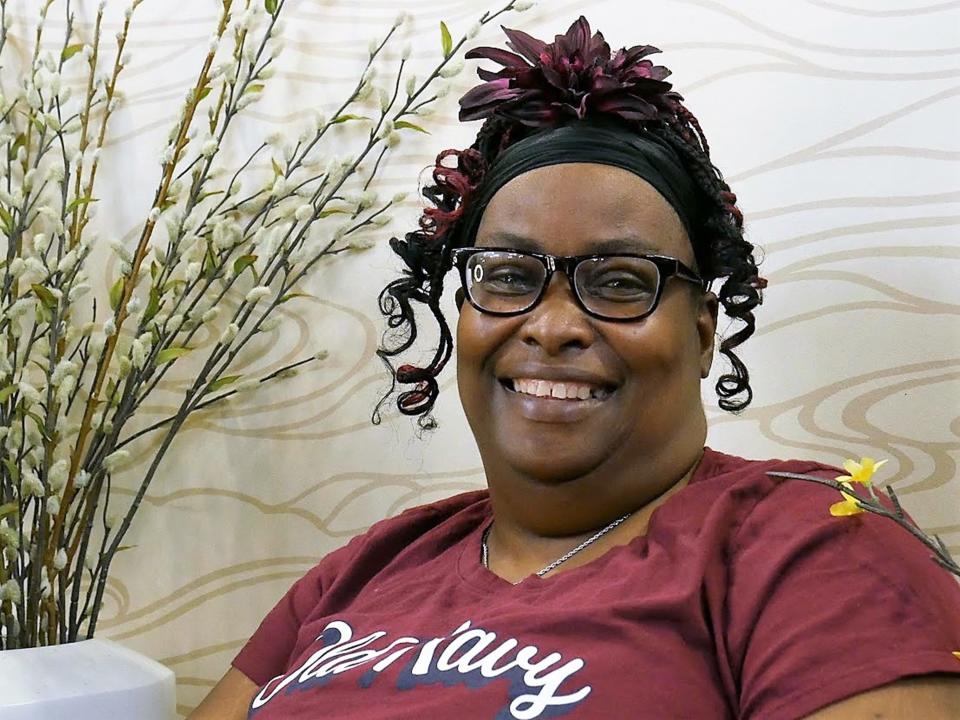Alabama's Black women are dying of cervical cancer at disproportionate rate
In rural west Alabama, Black women are dying of cervical cancer — one of the most preventable and treatable cancers — at disproportionate rates. Yet, this shouldn’t be the case.
I recently began working as a community-based advocate in partnership with the Southern Rural Black Women’s Initiative for Economic and Social Justice (SRBWI) and Human Rights Watch, two organizations that have been working to address cervical cancer disparities impacting Black women in the rural South since 2018.. What struck me the hardest since joining the SRBWI/Human Rights Watch team is the fact that cervical cancer is highly preventable and treatable, yet, so many women — especially Black women — are still dying from the disease.

Despite being very preventable, access to critical, life-saving information and services, such as the HPV vaccine and cervical cancer screenings and follow-up care, are not always available to Black women living in rural communities like mine, putting us in grave danger of developing the disease and dying from it.
I have a relative who was diagnosed with cervical cancer, so it’s a disease that hits close to home for me. My relative didn’t receive information on how she could prevent cervical cancer, and she also didn’t have access to adequate reproductive health care so unfortunately, she wasn’t unable to take the steps necessary to prevent the disease. While we know that the HPV vaccine plays a major role in preventing cervical cancer, as well as several other types of cancers, and that it’s recommended for both boys and girls at 11 or 12 years of age, so few people in my community have accurate information on the vaccine. Our local schools do not share this information with parents, and often medical providers aren’t discussing the vaccine as well. I personally haven’t seen widespread efforts led by public health agencies to get the word out about the vaccine. As a result, many people in my community do not even know what the HPV vaccine is, or where they can go to get it.
In addition to not having such lifesaving information to prevent cervical cancer, further barriers to care, such as transportation, a lack of gynecological care in many rural counties, and Alabama’s failure to expand Medicaid are additional challenges that prevent rural Black women, many who are uninsured and living in poverty, from accessing preventative screenings and follow up care. The cost of care for women who are diagnosed with cervical cancer can be out of reach. Research has shown that costs can well exceed $150,000 for women diagnosed at a late-stage, and even with insurance, patients are responsible for an estimated 4% in out-of-pocket costs on average. (The average cost of the HPV vaccine is approximately $250 but it is covered by many insurance companies as well as programs that provide the vaccine at low or no cost for those who are uninsured.
Access to information, adequate reproductive health care services, and affordable health insurance represent areas where policy change and the redirection of state resources could have a life-saving impact, without requiring much more than determination.
We need to center the needs of rural, Black women and address historic inequities preventing us from accessing comprehensive cervical cancer care, starting with ensuring access to crucial information on the HPV vaccine and affordable cervical cancer screenings and follow-up care. We — citizens of Alabama, health care providers, advocacy organizations, and policy makers — all need to join together to address these barriers, particularly when the resources to do so are available! Let’s eradicate cervical cancer by taking the necessary steps to prevent it before it starts.
Stacey Bennison is a lifelong resident of Greene County, Alabama. She has 2 children and 5 grandchildren. Stacey is a community-based advocate working in partnership with SRBWI and Human Rights Watch on cervical cancer education and advocacy in Alabama’s Black Belt. Most recently, in addition to her work with SRBWI and Human Rights Watch, Stacey worked with the Center for Global Health Innovation assisting Greene County residents in getting to COVID 19 vaccination appointments and helping to distribute supplies during the pandemic.
This article originally appeared on Montgomery Advertiser: Alabama's Black women die of cervical cancer at disproportionate rate

